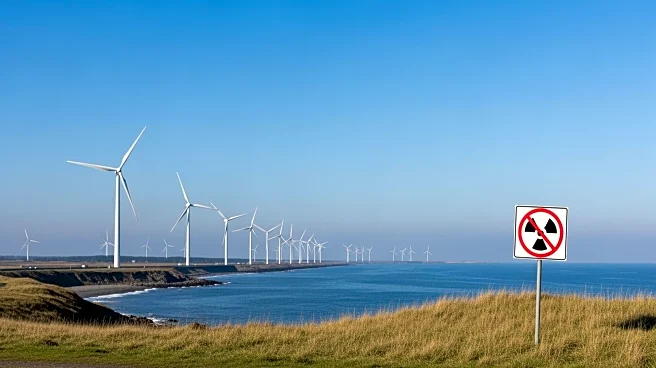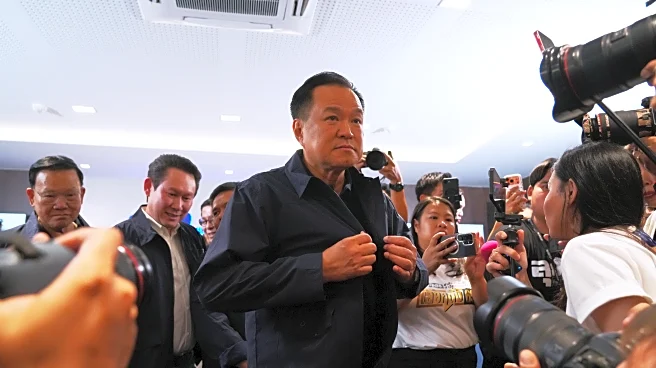What's Happening?
Green Party leader Zack Polanski has voiced opposition to the government's plans to construct a new generation of nuclear reactors in Hartlepool. The project, led by Centrica and US firm X-energy, aims to build 12 advanced modular nuclear reactors, potentially
creating up to 2,500 jobs. Polanski criticized the initiative as outdated technology, likening it to 'creating a fax machine,' and suggested that investment would be better directed towards wind and solar power, which he believes could also generate thousands of jobs. In contrast, Labour MP for Hartlepool Jonathan Brash supports the project, highlighting its potential to pioneer advanced modular technology and secure clean energy for the next 50 years. The site is planned to be developed next to the existing nuclear power station, which is scheduled for decommissioning in 2028.
Why It's Important?
The debate over the Hartlepool nuclear site underscores broader discussions about the future of energy production in the UK. While nuclear power is seen by some as a means to secure long-term clean energy, others argue that renewable sources like wind and solar are more sustainable and economically viable. The project promises significant economic benefits, including job creation and a potential £12 billion investment in the north-east of England. However, it also raises questions about environmental impact and the direction of energy policy. The outcome of this debate could influence future energy strategies and the balance between nuclear and renewable energy investments.
What's Next?
As the project progresses, stakeholders will likely continue to debate the merits of nuclear versus renewable energy. The government and involved companies may need to address environmental concerns and public opinion to ensure the project's success. Additionally, efforts to recruit a local workforce through collaboration with schools and colleges will be crucial in realizing the job creation potential. The development of the site and its impact on local and national energy policy will be closely monitored by political leaders and environmental groups.
Beyond the Headlines
The criticism from the Green Party highlights a cultural and ethical dimension in energy policy, reflecting a growing preference for sustainable and environmentally friendly solutions. This debate may influence public perception of nuclear energy and shape future political discourse on energy independence and climate change. The decision to invest in nuclear technology could also have long-term implications for the UK's role in global energy innovation.
















